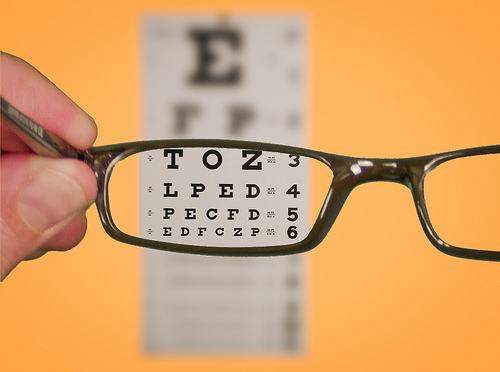
Image Credit: KenTeegardin/PhotopinCC
To coin a cliché, first impressions are everything (although we sometimes wish they weren’t).
A few examples that jump to mind:
- The job applicant dressed to the nines—but showed up late.
- A delectable meal ordered out—and was delivered to the table cold.
- The beautiful, new home recently listed—too bad the interior work was substandard.
All of us can think of those times when we initially formed opinions of something or someone. We may not want to sit in judgement, but first impressions are a reality.
If our expectations are not met, then our perception is forever colored. The job applicant might be a brilliant candidate, but will her punctuality (or lack thereof) interfere with job performance? And gee, our neighbors gave that restaurant high marks, but if I’m a food critic and my meal is cold, my review probably will be, too. And of course, if I’m wanting to purchase the best home for my dollar, that doesn’t include shelling out more cash to make costly updates right away.
On the other hand, there are those instances that can pleasantly surprise us: the sleeper hit at the box office, an unexpected “pay-it-forward” from the dawdler ahead, the once-dissed book that becomes a bestseller.
When our perceptions of people and things turn out to be different—exceedingly better—than what we’d originally imagined, often it leaves us scratching our heads. Not because we hate to admit our first impressions might have been colored, but perhaps, because we’re baffled at our inability to see past what we’d viewed as the obvious.
In today’s society, it seems we’re automatically geared to judge by our senses. (Sometimes, of course, that can be a good thing—a Holy Spirit kind of thing.)
I wonder, though, what about those times when our internal belief systems clash with our external barometers? Are we really able to separate the two?
When we recognize our first impressions as flawed, do we easily part with them, or do we tend to dissect, study, and continue to operate under preliminary assumptions?
Like most writers part of the writing process I enjoy is playing what if.
I like to create fictional characters and give them unique traits and tendencies that may or may not reveal who they really are.
What if Joe Blow’s new neighbor is a kind-hearted Christian but one with enough baggage to launch her own suitcase line?
What if some of that baggage includes a failed relationship, a questionable past, and a family member with a dark secret?
What if the new neighbor’s skeletons mirror those of Joe Blow’s? Will “Joe” accept his neighbor’s faults and foibles a little more easily then?
First impressions are what make a story come alive, especially in Christian fiction where people have preconceived notions about living the “good life.”
And just like real life, those perceptions aren’t always what they seem to be.
***
PLEASE SHARE:
These say more than we think. Or do they? (Click to Tweet)
Perceptions aren’t always what they seem. How they affect our stories: (Click to Tweet)
Can you share an experience about someone (generically, please) or something that turned out to be different from what you’d initially perceived—be it good or bad?
How did it make you feel?
Here’s to a productive day! *clink*
Blessings Always,


Comments 2
Well, there’s always “I didn’t REALLY marry this person, did I”?????
Discovering weirdnesses in the person we’ve committed our life to is perhaps the most profound “first impression altered over time” event we’ll ever see.
Moving past that can be hard, and a lot of couples never really make it; they hit a wall of disappointment that their mate is not as perfect as they thought, and they hold that individual responsible…just for being him-or-herself.
The problem is, as you say, what we bring to that first impression, the degree to which we try to mold someone else’s essential being into the “box” we’ve prepared.
Author
Andrew, great thoughts there! And true-to-life fodder for your stories, too, of course.